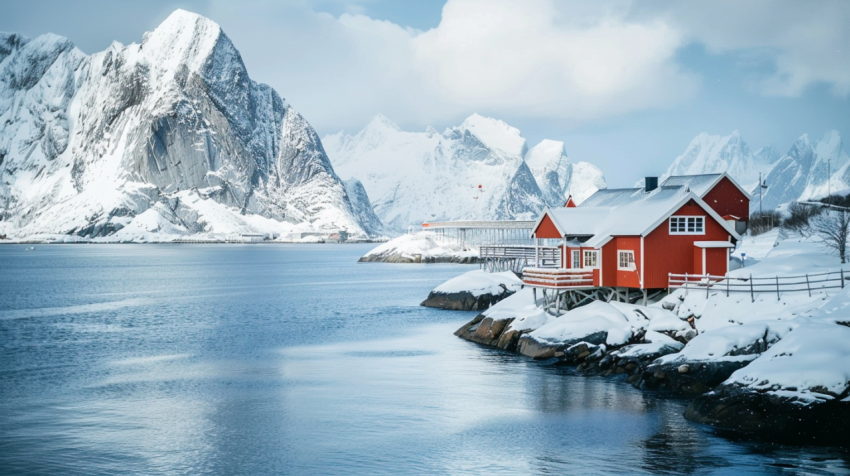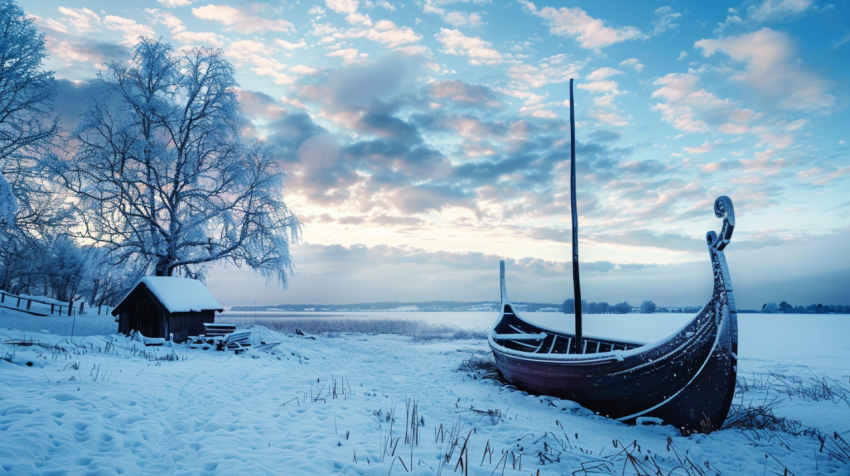











Christmas: A Celebration of Birth, Hope, and Generosity
Christmas, celebrated annually on December 25th, is one of the most widely observed holidays around the world. It commemorates the birth of Jesus Christ, who Christians believe is the Son of God. While rooted in Christian tradition, Christmas has also evolved into a secular holiday, embraced by people of various faiths and backgrounds. It's a time for family gatherings, festive decorations, gift-giving, and spreading joy and goodwill.
1. The Religious Roots of Christmas: Celebrating the Birth of Jesus
- The word "Christmas" comes from the Old English phrase "Cristes maesse," meaning "Mass of Christ."
- The central event of Christmas is the celebration of the birth of Jesus Christ in Bethlehem, as described in the New Testament of the Bible.
- Christians believe that Jesus is the Son of God, sent to Earth to redeem humanity from sin.
- The story of the Nativity, including the journey of Mary and Joseph, the birth in a stable, and the visit of the Magi, is central to the Christmas narrative.
2. The Evolution of Christmas Traditions: From Pagan Roots to Modern Customs
Many Christmas traditions have roots in pre-Christian winter festivals:
- Saturnalia: The ancient Roman festival of Saturnalia, celebrated in mid-December, involved feasting, gift-giving, and a temporary reversal of social roles.
- Yule: The winter solstice celebration of Germanic peoples, Yule, featured the burning of a Yule log, feasting, and decorating with evergreen plants.
- Early Christians adopted and adapted some of these pagan customs, incorporating them into the celebration of Christmas.
- The date of December 25th was likely chosen to coincide with existing winter solstice celebrations, facilitating the spread of Christianity.
3. Christmas Symbols and Their Meanings: Festive Icons
Christmas is associated with a rich array of symbols, each carrying its own meaning:
- Christmas Tree: The tradition of decorating an evergreen tree, often with lights and ornaments, is believed to have originated in Germany. It symbolizes everlasting life.
- Stars: Represent the Star of Bethlehem, which guided the Magi to the birthplace of Jesus.
- Angels: Often depicted as messengers of God, representing peace and goodwill.
- Bells: Used to ring out the news of Jesus' birth and to ward off evil spirits.
- Candles: Represent the light of Christ coming into the world.
- Wreaths: Circular, made of evergreens, and symbolizing eternity.
- Gifts: Symbolize the gifts the Magi brought to the baby Jesus, and represent generosity and love.
4. Santa Claus: The Jolly Gift-Giver
- Santa Claus, also known as Saint Nicholas, Father Christmas, or Kris Kringle, is a legendary figure who is said to bring gifts to children on Christmas Eve.
- The modern image of Santa Claus, a jolly, white-bearded man in a red suit, was popularized in the 19th and 20th centuries, particularly through the artwork of Thomas Nast and Coca-Cola advertising campaigns.
- The story of Santa Claus is based in part on the historical figure of Saint Nicholas, a 4th-century bishop known for his generosity to the poor.
- Children often write letters to Santa and track his progress on NORAD.
5. Christmas Carols: Songs of the Season
Christmas carols are an integral part of the Christmas celebration:
- Many traditional Christmas carols, such as "Silent Night," "O Holy Night," and "Joy to the World," have religious themes, celebrating the birth of Jesus.
- Other popular Christmas songs, like "Jingle Bells," "Rudolph the Red-Nosed Reindeer," and "White Christmas," are more secular in nature.
- Caroling, the tradition of singing Christmas songs in public or door-to-door, is a popular activity in some communities.
6. Christmas Food and Feasts: A Time for Indulgence
Christmas is a time for feasting and enjoying special culinary treats:
- Roast Turkey or Ham: Often the centerpiece of the Christmas dinner in many Western cultures.
- Christmas Pudding: A traditional English dessert made with dried fruits, spices, and suet.
- Gingerbread: A spiced cookie or cake, often shaped into houses or figures.
- Eggnog: A rich, creamy beverage made with milk, eggs, sugar, and spices, often spiked with alcohol.
- Mince Pies: Small pies filled with a mixture of dried fruits and spices.
7. Christmas Celebrations Around the World: Diverse Traditions
Christmas is celebrated in diverse ways around the world, reflecting local customs and traditions:
- United States: Traditions include decorating Christmas trees, exchanging gifts, attending church services, and enjoying a large Christmas dinner.
- United Kingdom: Similar to the U.S., with the addition of Christmas crackers, Boxing Day, and pantomimes.
- Germany: Known for its Christmas markets, advent calendars, and the tradition of St. Nicholas visiting children on December 6th.
- Mexico: Christmas celebrations, known as "Las Posadas," involve reenactments of Mary and Joseph's journey to Bethlehem.
- Philippines: Has the longest Christmas season in the world, and is known for their Christmas lanterns called "parols."
- Australia: Since it is in the Southern Hemisphere, Christmas falls during the summer. Celebrations often include barbecues and outdoor activities.
8. The Commercialization of Christmas: A Modern Dilemma
In recent times, Christmas has become increasingly commercialized:
- The focus on gift-giving and consumerism has led to concerns about the true meaning of Christmas being overshadowed.
- Many people feel pressure to spend large sums of money on gifts and decorations.
- There is a growing movement to promote a more mindful and less materialistic approach to Christmas, emphasizing the importance of spending time with loved ones and giving back to the community.
9. The Spirit of Christmas: Love, Hope, and Goodwill
Despite the commercialization, the spirit of Christmas endures:
- It's a time for spreading love, joy, and goodwill to others.
- It's an opportunity to reflect on the importance of family, friends, and community.
- It's a reminder of the message of hope and peace that is central to the Christmas story.
Conclusion:
Christmas is a multifaceted holiday with deep religious roots and a rich tapestry of traditions that have evolved over centuries. It's a time for celebration, reflection, and connection with loved ones. While the modern celebration of Christmas often involves a mix of religious and secular customs, the core values of hope, generosity, and goodwill remain at its heart. Whether you celebrate Christmas as a religious holiday or a cultural festival, it's a time to embrace the spirit of the season and to spread joy to those around you.
Christmas, Christmas 2023 (or relevant year), Christmas Day, Christmas Eve, history of Christmas, Christmas traditions, Christmas meaning, Christmas story, Nativity, Jesus Christ, Santa Claus, Father Christmas, Saint Nicholas, Christmas tree, Christmas decorations, Christmas lights, Christmas ornaments, Christmas gifts, Christmas carols, Christmas songs, Christmas food, Christmas dinner, Christmas cookies, Christmas movies, Christmas markets, Advent calendar, Boxing Day, Christmas around the world, origin of Christmas, why is Christmas celebrated, Merry Christmas, Happy Holidays.

